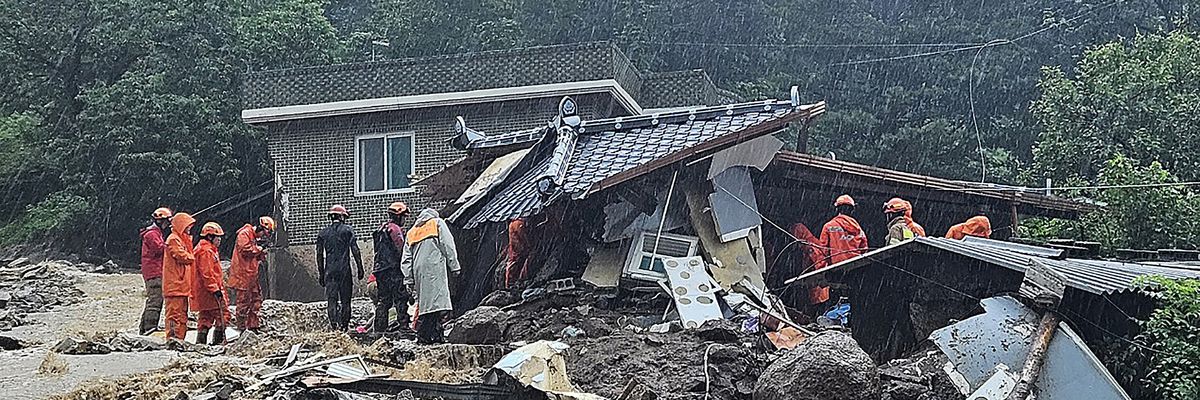Massive flooding and landslides sparked by three days of heavy monsoon rains in South Korea have left at least 26 people dead and more than a dozen missing as of Saturday.
South Korean authorities
said that more than 4,700 people have evacuated their homes nationwide amid the destructive rains, which are expected to intensify in the days ahead.
The
BBC reported that "most of the known fatalities were reported in the mountainous North Gyeongsang region, where landslides swept away houses."
Torrential rains have been hammering Asia in recent days, with Japan, China, and India each experiencing devastating floods alongside scorching heatwaves. Scientists have warned that rain worldwide will become more intense as the planet continues to warm due to the fossil fuel-driven climate emergency.
"Nowhere is immune any longer from the explosion of extreme weather brought about by the collapse of the climate," climate scientist Bill McGuire
tweeted in response to the South Korea flooding.
Cheong Tae Sung, a flooding expert at South Korea's National Disaster Management Research Institute,
toldThe New York Times that the nation's rain seems to have been hitting in more severe bursts amid warming temperatures.
Globally, June was the hottest month ever recorded. But that record is unlikely to stand for long: According to the World Meteorological Organization, the first week of July was the hottest on record.
